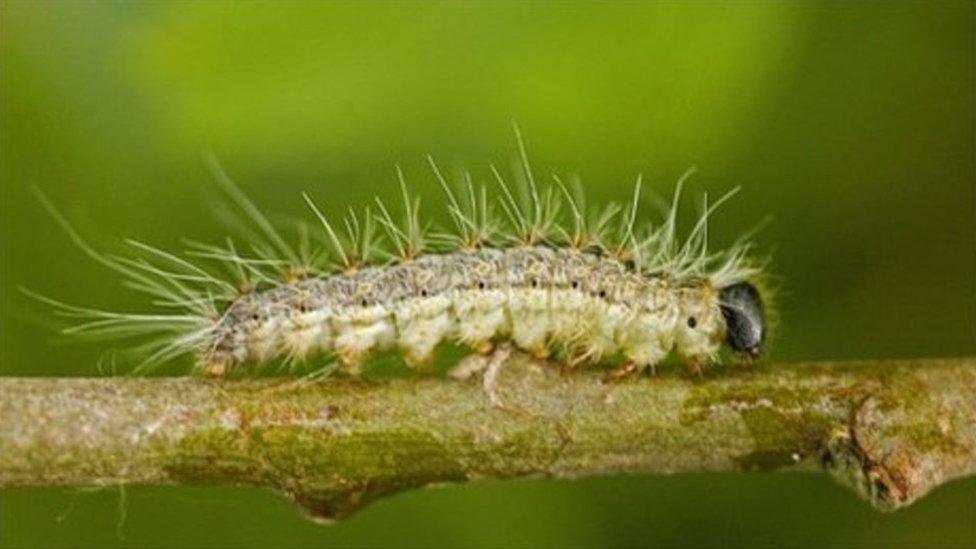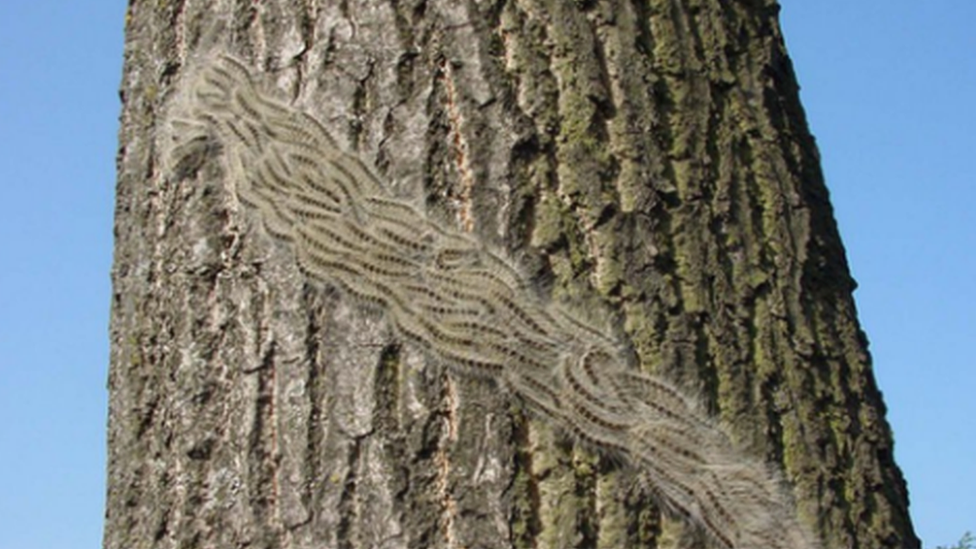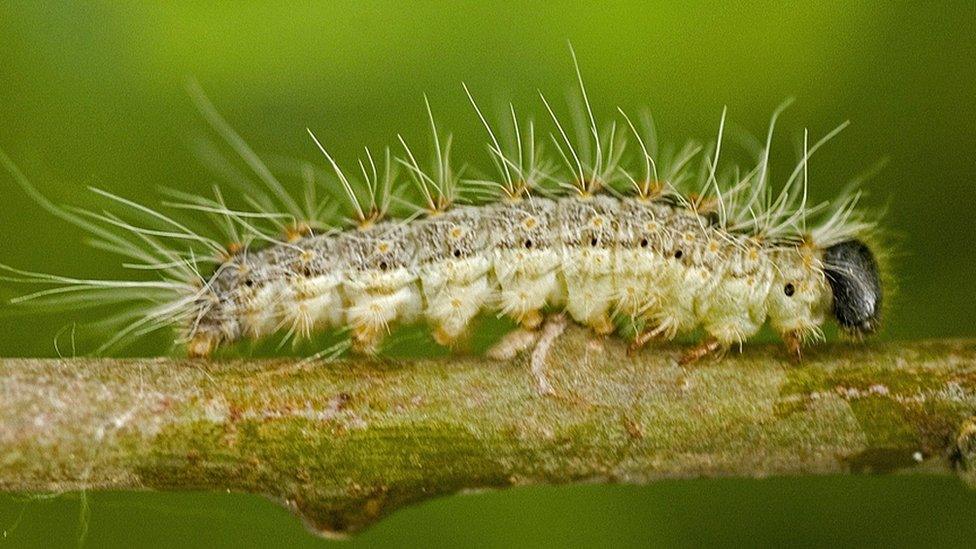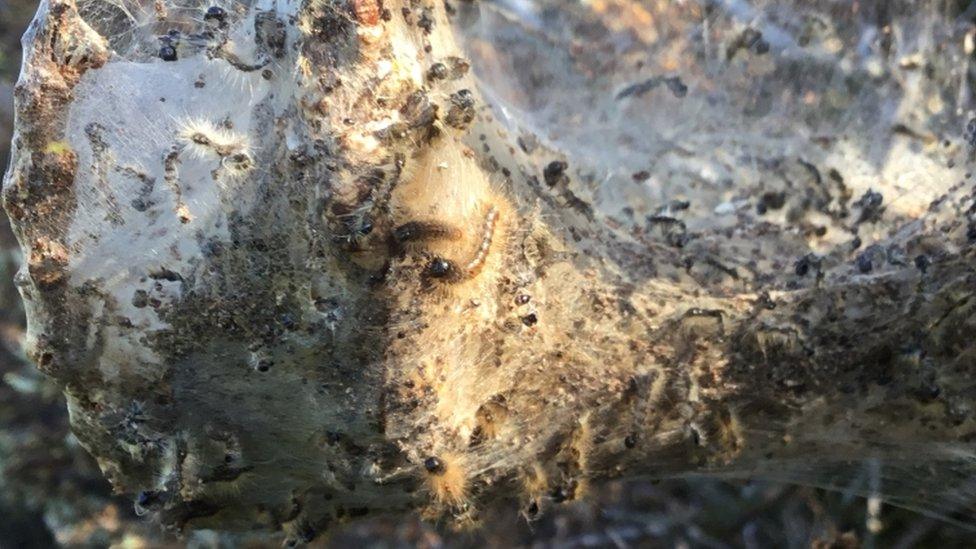Derbyshire: Long Eaton trees sprayed after toxic caterpillar infestation
- Published

The oak processionary moth can damage plant life and irritate human skin
Trees in a town have been sprayed with insecticide after an infestation by caterpillars that can damage plant life and irritate human skin.
Government scientists have urged people in Derbyshire and Nottinghamshire to be vigilant after trees in Long Eaton were infested by oak processionary moth.
Anyone who spots the pest is asked to report it via the Tree Alert portal, external.
Prof Nicola Spence, UK chief plant health officer, said "swift and effective action" was being taken.
The species was first detected in London in 2006 and has since established itself in the city and some surrounding counties.
The rest of the country had been designated a pest-free area until the sighting in Derbyshire.

An infestation of the moth's caterpillars has been found in Long Eaton
The moth's caterpillars have black heads and grey bodies covered in long white hairs, and usually move nose-to-tail in a procession.
Their nests are typically dome or teardrop-shaped, averaging the size of a tennis ball. They are white when fresh, but soon become discoloured and brown.
Prof Spence said: "Oak processionary moth is an insect pest of oak trees and poses a threat to both plant and human health.
"We are taking swift and effective action to treat the infested trees and eradicate the pest from this area, and prevent further spread in the surrounding area."
Tim Howlett, who lives in Long Eaton, spotted the pest in his garden after receiving a leaflet warning of the infestation.
"On the leaflet there were some images of clusters of caterpillars covered in what looked like a sort of spider's web, and on the third time I looked... I thought 'that's them,'" said Mr Howlett, a sound engineer for BBC Radio Derby.
He called the Forestry Commission, which said it would come and spray his tree.
"The day after a neighbour of mine said they'd been in and done it and that they'd sheeted down her pond, because the insecticide they use is deadly to aquatic creatures," he said.
Ken Orpe, of the charity Butterfly Conservation, said the pests were usually found further south, but were moving north due to climate change.
"We're finding the same thing with butterflies," he said.
"We're getting species in Derbyshire now which I used to go and see... in Dorset and Hampshire, like the silver-washed fritillary... they've reached the Peak District."

Follow BBC East Midlands on Facebook, external, Twitter, external, or Instagram, external. Send your story ideas to eastmidsnews@bbc.co.uk.
Related topics
- Published9 July 2019

- Published20 May 2018
